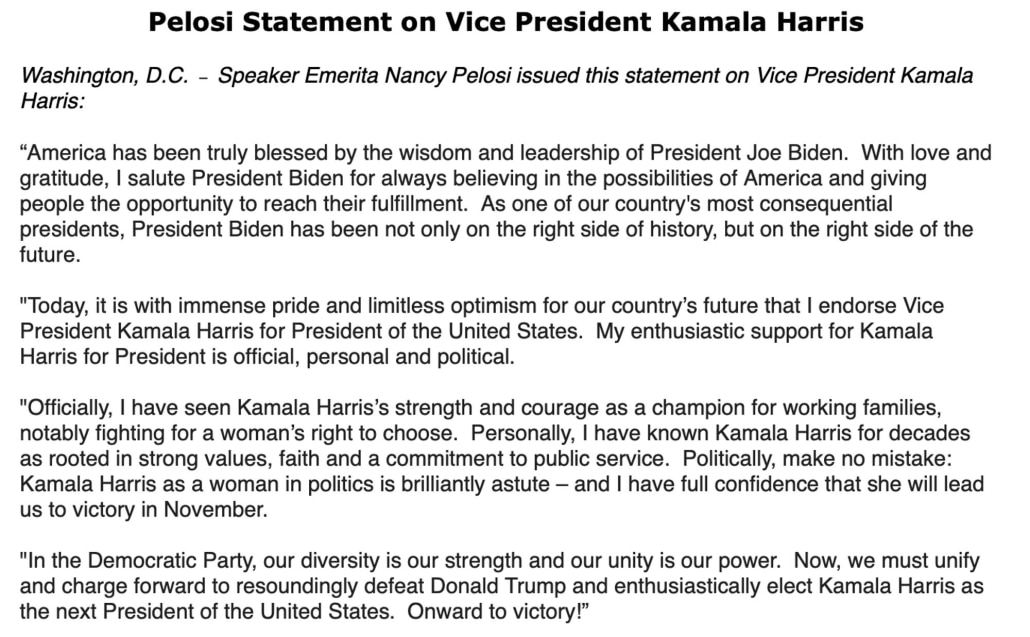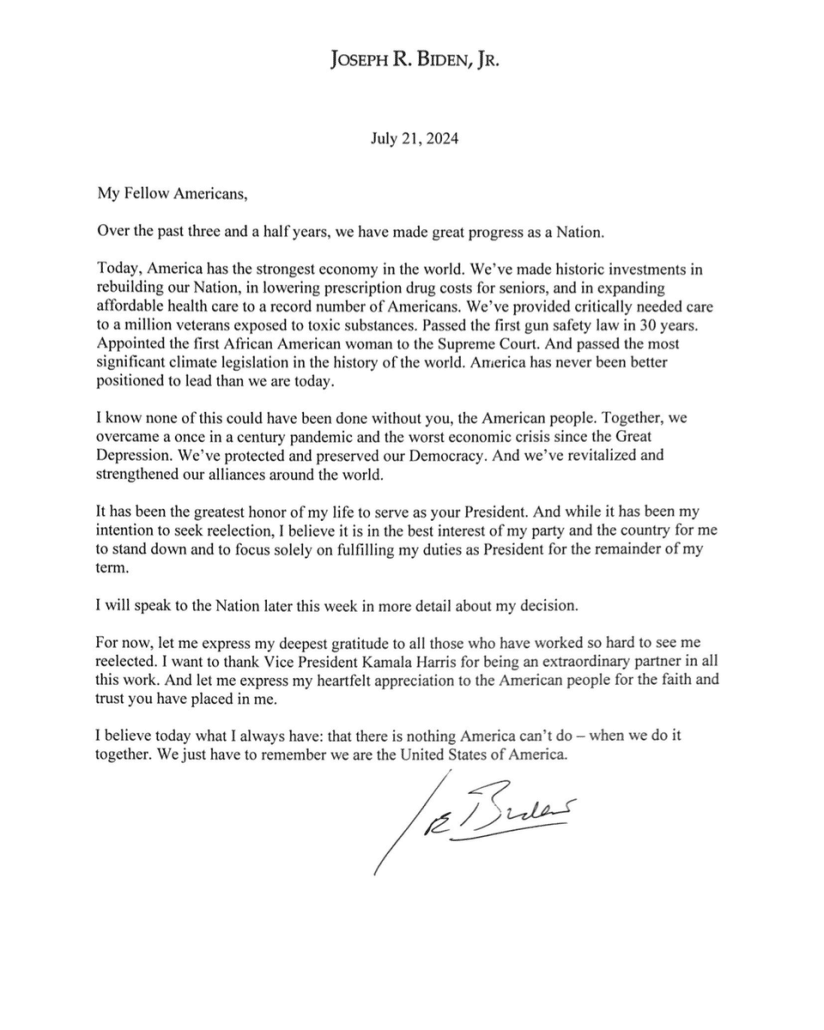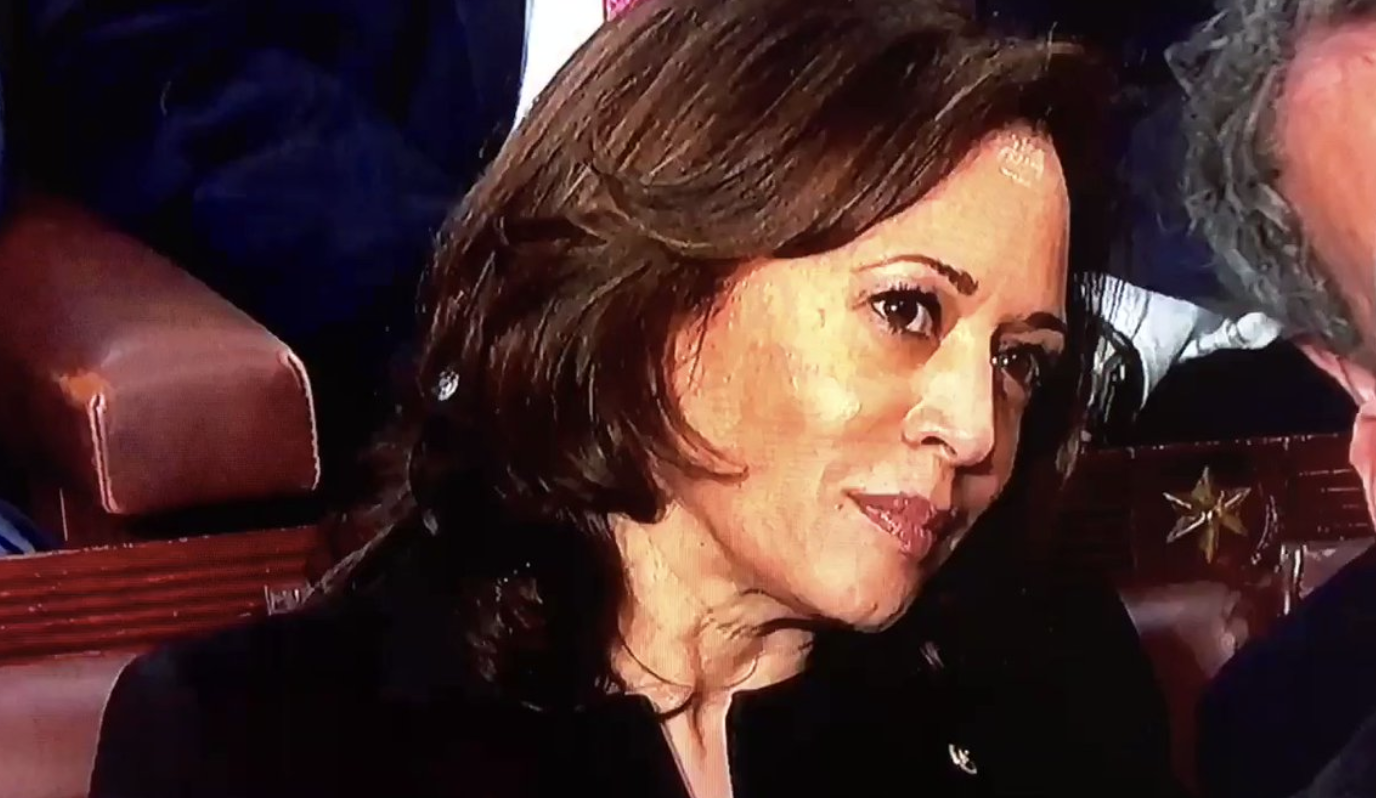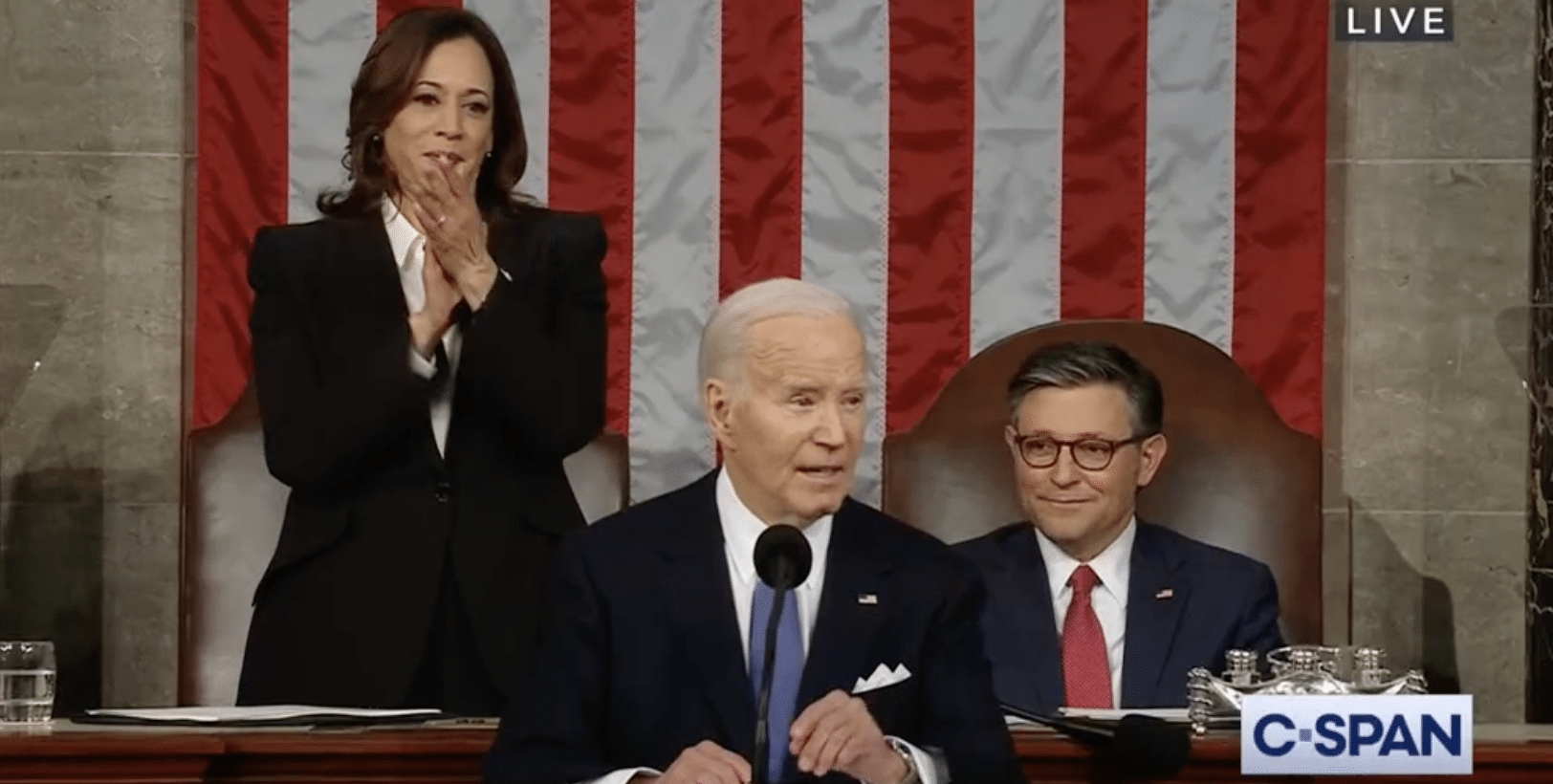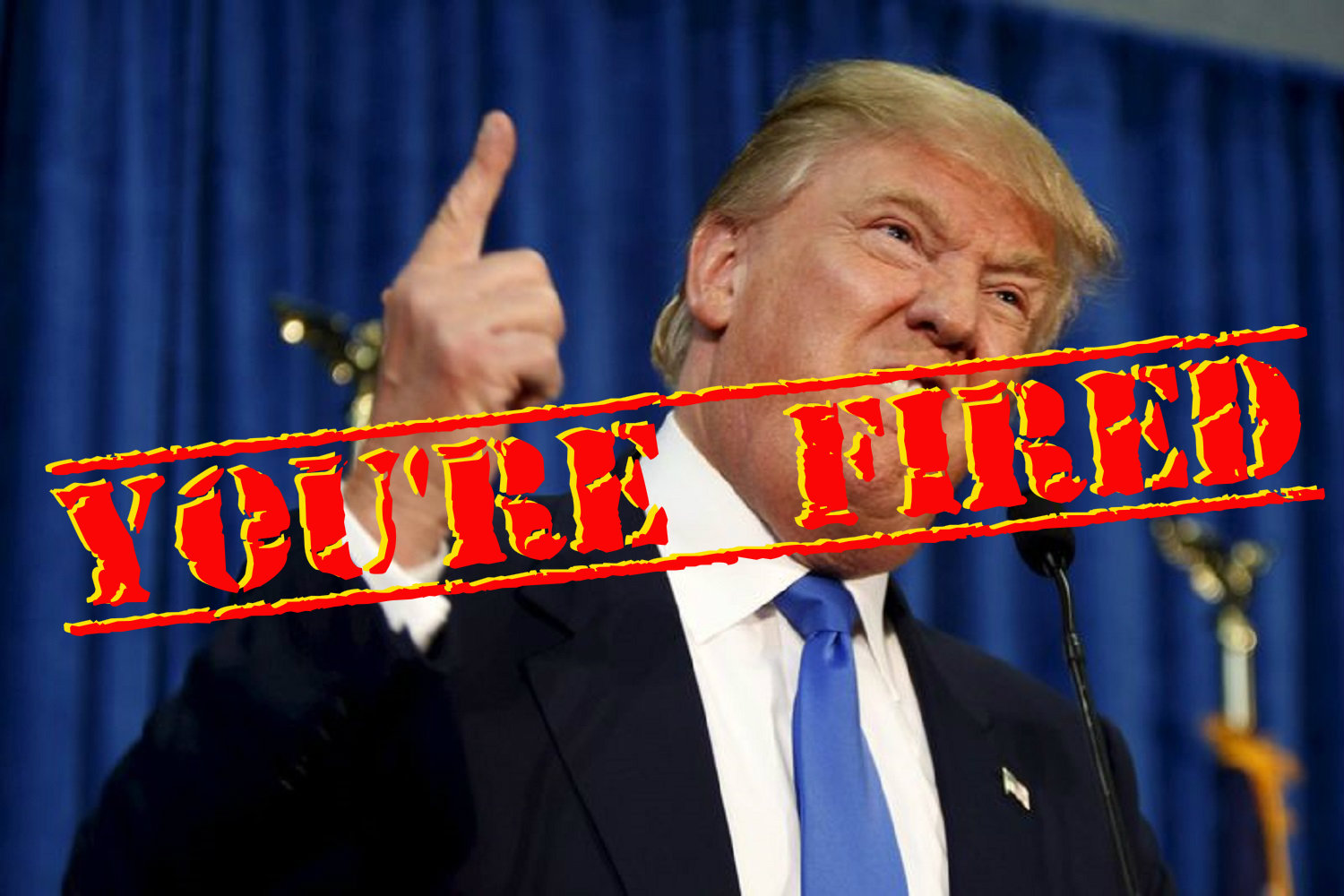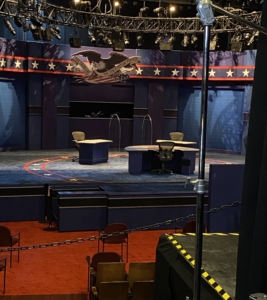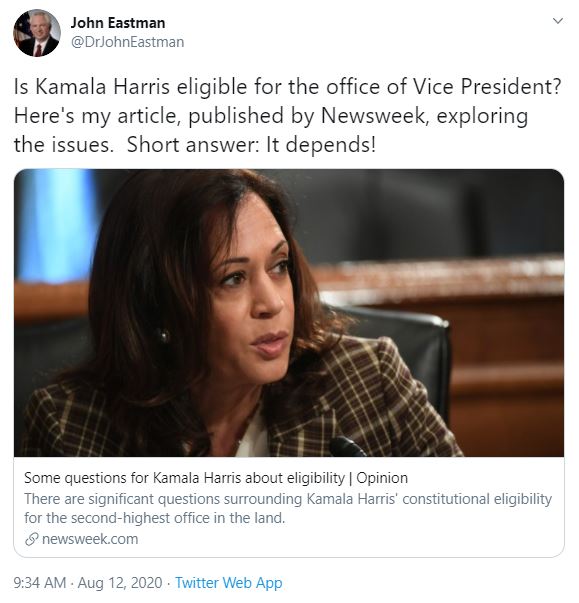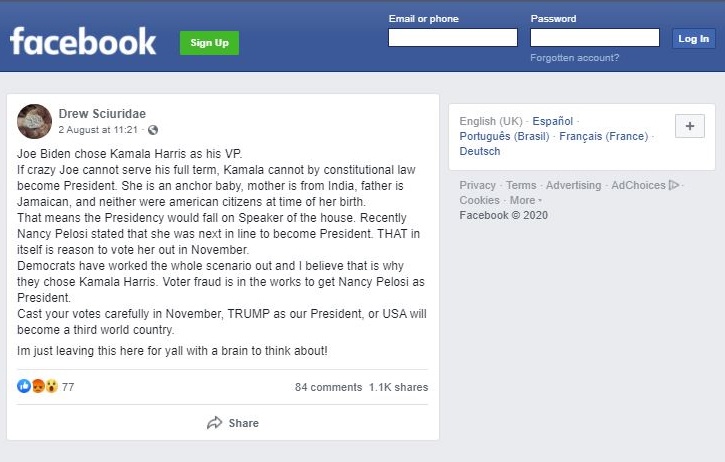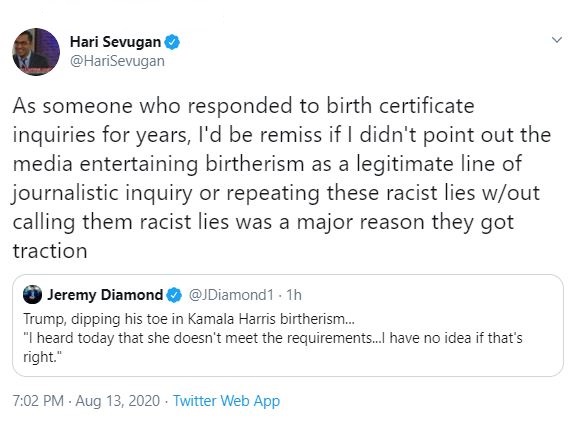Posts
Biden’s Timing: Undercutting Bibi
/124 Comments/in 2024 Presidential Election, Gaza /by emptywheelThere are many things that explain the timing of President Biden’s decision to drop out of the race. Most importantly, after staying reasonably steady with Trump in the polls, the combined weight of the Democratic firing squad, and — probably — some bounce from the shooting attempt on Trump had started a real hemorrhaging in Biden’s polling. He had to drop when he did to stave off a collapse in the polls.
His former colleagues in the Senate were prepping to move en masse against him. He had asked Chuck Schumer for a week to consider Schumer’s warning, and time was up.
His COVID diagnosis likely gave him a few days to reflect on the decision before him.
Biden almost certainly didn’t base his timing on Bibi Netanyahu’s visit this week (though he deferred explaining it for a few days, which may put that address after Bibi’s). But the timing is wildly auspicious.
While he remains a wildly successful President, Biden dropped out of the race because his age prevents him from running effectively. They are different skills. His age benefits the former but hinders the latter.
But Biden’s policies on Gaza were the primary thing that cut what otherwise might have been a natural lead on Trump. It’s not that Biden is popular. It’s that Trump is so unpopular a Democrat should start out ahead. Or should have, before Israel started slaughtering Palestinian civilians. Some of the activists that have most aggressively targeted Biden are claiming credit (inaccurately, but they should claim credit anyway) for his decision to drop out.
And among Biden’s most stubborn beliefs was not that he was the best candidate to beat Trump, but that he could reason with — that he could moderate — Bibi. It was a foolish belief born of a lifetime of dealing with the man. It was perhaps a naive blindness to the way that Bibi has repeatedly shivved Democrats in the back, not least when Trump first partnered with Russia during the 2016 transition to undermine Obama’s effort to rein in West Bank settlements.
I’ve long expected Bibi’s visit to be part of some partisan attack on Biden, replete with a continued unwillingness to consider ceasefire deals because Bibi is less worried about Israeli and US hostages than he is about retaining power. I fully expect Bibi to yoke his own political future to that of Donald Trump.
But the timing of the visit, coming as it is when Kamala Harris will be more focused on making calls and wooing endorsements, undercuts much of the power of it.
While the Vice President is scheduled to meet with Bibi, separately from Biden, I can’t imagine anyone will expect her to play a major role in this week’s events.
And that provides her space.
I don’t expect that she’ll disavow Biden’s failed Israeli policies, least of all when he is still pursuing a ceasefire. At least not yet.
But because Bibi’s visit will occur when everyone expects Harris to be focused on other things, it’s about the one way that she’ll get a pass on the inevitable centering of Israel in US politics.
Kamala does have distance from Biden on Gaza. She was the person to whom many activists have expressed their dismay. And that distance gives her options going forward.
In virtually every other scenario, Kamala would be tied to a Biden policy that has been deeply unpopular among Democrats. But because of the timing, she may be able to keep that distance.
Update: Some of the Biden staffers who quit over his Gaza policy are speaking favorably about Kamala.
Update: Kamala refused (er, um, declined) to preside over Bibi’s joint session.
Dems Coalesce around Vice President Kamala Harris
/183 Comments/in 2024 Presidential Election /by emptywheelWe’re filling up thread quickly and I’m about to go to bed.
So I’m starting a new thread.
Since President Biden dropped out and endorsed the Vice President, she has formally taken over the campaign, raised $27.5 million in small donations, and collected endorsements from dozens of prominent Democrats (including a notable one from PA Governor Josh Shapiro, undoubtedly one of the leading candidates to be Kamala’s running mate).
About the only one publicly considering a challenge — aside from Marianne Williamson — is turncoat Joe Manchin, a 76-year old retiree looking to replace the 81-year old former nominee.
Dems are in array.
And the Republican nominee, a felon, fraudster, and rapist, has announced he is afraid to do a debate with a prosecutor like Kamala Harris. He’s also wailing about his sunk cost.
Update, Monday: Manchin has now given up the ghost of a renewed POTUS bid.
More endorsements:
Roy Cooper (with Josh Shapiro, among the most likely VP candidates)
Andy Beshear, who calls out JD Vance for dissing Kentuckyians
Tony Evers
Wes Moore
Mark Kelly
Jared Polis
Pete Buttigieg
Dick Durbin
Kirsten Gillibrand
Brian Schatz
Ron Wyden
Bob Casey
John Fetterman
Catherine Cortez Masto
AOC
Ayanna Pressley
Delia Ramirez
Greg Casar
Jamaal Bowman
Tennessee’s entire delegation
All 50 Democratic Chairs
Kathy Hochul
Phil Murphy
AFT
SEIU
Update: Nancy Pelosi endorses:
Biden Drops Out of Race, Endorses Vice President Harris
/310 Comments/in 2024 Presidential Election /by emptywheelPer letter posted to Xitter.
Update: A follow-up tweet endorsed Kamala.
My fellow Democrats, I have decided not to accept the nomination and to focus all my energies on my duties as President for the remainder of my term. My very first decision as the party nominee in 2020 was to pick Kamala Harris as my Vice President. And it’s been the best decision I’ve made. Today I want to offer my full support and endorsement for Kamala to be the nominee of our party this year. Democrats — it’s time to come together and beat Trump. Let’s do this.
Harris accepts!
On behalf of the American people, I thank Joe Biden for his extraordinary leadership as President of the United States and for his decades of service to our country. His remarkable legacy of accomplishment is unmatched in modern American history, surpassing the legacy of many Presidents who have served two terms in office.
It is a profound honor to serve as his Vice President, and I am deeply grateful to the President, Dr. Biden, and the entire Biden family. I first came to know President Biden through his son Beau. We were friends from our days working together as Attorneys General of our home states. As we worked together, Beau would tell me stories about his Dad. The kind of father—and the kind of man—he was. And the qualities Beau revered in his father are the same qualities, the same values, I have seen every single day in Joe’s leadership as President: His honesty and integrity. His big heart and commitment to his faith and his family. And his love of our country and the American people.
With this selfless and patriotic act, President Biden is doing what he has done throughout his life of service: putting the American people and our country above everything else.
I am honored to have the President’s endorsement and my intention is to earn and win this nomination. Over the past year, I have traveled across the country, talking with Americans about the clear choice in this momentous election. And that is what I will continue to do in the days and weeks ahead. I will do everything in my power to unite the Democratic Party—and unite our nation—to defeat Donald Trump and his extreme Project 2025 agenda.
We have 107 days until Election Day. Together, we will fight. And together, we will win.
President Biden is a great public servant who knows better than anyone what it takes to defeat Donald Trump. His remarkable work to lower prescription drug costs, fix the damn roads, bring supply chains home, address climate change, and ensure America’s global leadership over decades will go down in history. My job in this election will remain the same: doing everything I can to elect Democrats and stop Donald Trump, a convicted felon whose agenda of raising families’ costs, banning abortion nationwide, and abusing the power of the White House to settle his own scores is completely wrong for Michigan. [my emphasis]
For my entire life, I’ve looked at my dad in awe. How could he suffer so much heartache and yet give so much of whatever remained of his heart to others?
Not only in the policies he passed, but in the individual lives he’s touched.
Over a life time I have witnessed him absorb the pain of countless everyday Americans who he’s given his personal phone number to, because he wanted them to call him when they were hurting. When their last hopes were slipping through their hands.
That unconditional love has been his North Star as a President, and as a parent. He is unique in public life today, in that there is no distance between Joe Biden the man and Joe Biden the public servant of the last 54 years.
I’m so lucky every night I get to tell him I love him, and to thank him. I ask all Americans to join me tonight in doing the same.
Thank you, Mr. President. I love you, Dad.
Endorsements:
The Clintons
John Kerry
Josh Shapiro
Chris Coons
Mark Warner
Tim Kaine
Elizabeth Warren
Adam Schiff
Jon Ossoff
Tammy Baldwin
Mazie Hirono
Steny Hoyer
James Clyburn
Pramala Jayapal
Jamie Raskin
Eric Swalwell
Lucy McBath
Dan Kildee
Annie Kuster
Ilhan Omar
Cori Bush
Deborah Ross
Summer Lee
Katie Porter
Tish James
Keith Ellison
Gabrielle Giffords
Alex Soros
Not endorsing:
Nancy Pelosi
Obama
Don’t Let a Biden Succession Crisis Create a Succession Crisis
/93 Comments/in 2024 Presidential Election /by emptywheelIt took no time for the pundits calling for Joe Biden to drop out of the race to reveal their fundamental childishness by asking for someone — Gavin Newsom, Gretchen Whitmer, JB Pritzker, Josh Shapiro — whose selection would create as many problems as they might, hypothetically, solve.
Nicholas Kristof, pulling a paycheck from the same people who demanded Biden step down because he didn’t do their job — “hold Mr. Trump accountable for his lies, his failures and his chilling plans” — well enough, even suggested the 71-year old guy running for a must-win Senate seat should take Joe’s place.
Biden can resolve this by withdrawing from the race. There isn’t time to hold new primaries, but he could throw the choice of a successor to the Democratic National Convention in Chicago. The Democratic Party has some prominent figures who I think would be in a good position to defeat Trump in November, among them Gov. Gretchen Whitmer of Michigan, Senator Sherrod Brown of Ohio and Gina Raimondo, the secretary of commerce. And there are many others. [my emphasis]
These are not serious people, or even very smart about politics.
For both political and legal reasons, it would be doable to swap Biden for Kamala Harris, and for the same political and legal reasons, swapping Biden for anyone else is highly likely to do at least as much harm as good.
There are a number of people making this point succinctly. Jamelle Bouie has said it in a lot of ways worth following. Dan Drezner says it here.
But even these guys are making what I view to be a potentially catastrophic mistake. They think Biden should both step down from the race and resign the presidency, as Drezner lays out this way.
Here’s the thing, though: if Biden were to decide to step aside in the wake of a poor debate performance, the inevitable question would be whether he should step aside immediately. As previously noted, he is only going to keep aging, and the federal government cannot function well with a 10-4 presidency.
Biden resigning this summer would generate three political advantages. First, Kamala Harris being sworn in as the first lady president would be, to quote Biden, a big fucking deal. It would be a suitable final act in Biden’s distinguished political biography. Second, it would make the November election a choice between former president Trump and President Harris. The move would put Harris at Trump’s level and eliminate experience as a Trump argument during the campaign. Finally, Harris being president would remove the inherent awkwardness that sitting vice presidents have faced when running for the top job: being unable to disagree or disavow the sitting president’s policies. Anything that makes it easier for Kamala Harris to not resemble Al Gore is a good thing.
I think these calls for Biden to resign are as facile as the calls for Gretchen Whitmer to march into the convention and take over (much as I might like that to happen).
That’s true for one big reason: It turns out with a House packed with rabid supporters of Trump and led by a better-spoken but equally rabid supporter of this fascist project, having a Vice President is an important failsafe for democracy.
That’s true for two reasons. First, remember what happened on January 6, 2021? Big mob, chants of “hang the VP,” tweets encouraging the mob to do so? The VP may not have a big portfolio on most days. But she does on the day that, recent history warns us, is a fragile moment of our democracy. Certainly, it’s possible Democrats could convince Republicans to let Patty Murray do that job, as Chuck Grassley was prepared to do back in 2021.
But the bigger problem is the target you would put on Kamala Harris’ back if she became a President, running for re-election, without a Vice President as her designated successor. Trump has already made it clear he plans to return to power by any means necessary. Trump has already spent years frothing up his followers to a frenzy that could (and has) tipped into violence with little notice. Indeed, more than a handful of Trump’s supporters have embraced violence, some after getting riled up on Truth Social, others after little more than an incendiary Fox News rant.
The Secret Service did a piss poor job of protecting Kamala Harris on January 6. Let’s not tempt fate or Trump’s rabid brown shirts to make Mike Johnson President.
Besides, very few of the pundits screaming to replace Biden are focused on governance. This Franklin Foer piece, for example, engages in paragraph after paragraph of projection about the motives of Biden’s top aides, argues that it’s not enough to be a good President, Biden also has to campaign competently.
When I talk with aides on the inside, they never question Biden’s governing capacity. Perhaps this is their own wishful thinking. Perhaps they are better able to see how the benefits of experience overwhelm his inability to recall a name. But it’s also the product of a delusion among the Democratic elite about what constitutes effective leadership. Governing competently is different from campaigning competently. The ability to think strategically about China, or to negotiate a complicated piece of bipartisan legislation, is not the limit of politics. It’s not enough to deliver technocratic accomplishments or to prudently manage a chaotic global scene—a politician must also connect with the voters, and convince them that they’re in good hands. And the Biden presidency has always required explaining away the fact that the public wasn’t buying what he was selling, even when the goods seemed particularly attractive. [my emphasis]
The noxious NYT op-ed calling on Biden to step down because he doesn’t do their job well enough is likewise focused on Biden as campaigner.
The president appeared on Thursday night as the shadow of a great public servant. He struggled to explain what he would accomplish in a second term. He struggled to respond to Mr. Trump’s provocations. He struggled to hold Mr. Trump accountable for his lies, his failures and his chilling plans. More than once, he struggled to make it to the end of a sentence.
Mr. Biden has been an admirable president. Under his leadership, the nation has prospered and begun to address a range of long-term challenges, and the wounds ripped open by Mr. Trump have begun to heal. But the greatest public service Mr. Biden can now perform is to announce that he will not continue to run for re-election.
As it stands, the president is engaged in a reckless gamble. There are Democratic leaders better equipped to present clear, compelling and energetic alternatives to a second Trump presidency. There is no reason for the party to risk the stability and security of the country by forcing voters to choose between Mr. Trump’s deficiencies and those of Mr. Biden.
[snip]
[T]he United States needs a stronger opponent to the presumptive Republican nominee. To make a call for a new Democratic nominee this late in a campaign is a decision not taken lightly, but it reflects the scale and seriousness of Mr. Trump’s challenge to the values and institutions of this country and the inadequacy of Mr. Biden to confront him.
And it makes sense. As I argued, when Biden responded to a focus on his age in January, he correctly said he was doing one amazingly taxing job well, that of being President. But in recent weeks, he has also been in the thick of an equally taxing job, flying around the country and glad-handing potential voters, many of whom carry germs that don’t normally make their way into the Oval Office. He has also had the stress of his son getting convicted in a trial that would never have happened if he weren’t the son of President Joe Biden. This is best understood, in my mind, as a question about whether Biden can do the two jobs required of him.
Aside from his Israeli policy, Biden is, most Democratic voters (and even NYT’s editorial board) will concede, a remarkably successful President. Via whatever means, he has managed to do that job well, even at the ripe age of 81.
If he’s doing his day job well but there are questions about whether he has the stamina to do a second full-time job on top of the first one, the answer is not to send him out to pasture on both.
This is a perceived or real stamina problem, not — at least thus far — a competence problem.
Which means there’s no reason to create another succession crisis in an attempt to save democracy.
The goal here is not just to prevent Trump from winning the election. The goal is to prevent Trump from attaining the Presidency again, via whatever means he plans to pursue. And for that reason, it is highly unwise to add points of potential failure he can exploit where, thus far, there are none.
“History Is Watching”
/274 Comments/in 2024 Presidential Election /by emptywheelI obviously come late to President Biden’s powerful State of the Union speech last night.
My biggest takeaway is this: The State of the Union is about visibility. That’s why the First Lady’s guests matter. That’s why the chattering class chatters about who is sitting next to whom and what they’re wearing. That’s why CSPAN preps so well to highlight key spectators, pro and con.
Joe Biden gave tribute to the possibility that government can work. He laid out one after another policy that makes sense, and often as not, saves money. He talked about real policy successes. He promised to fight against past policy disasters.
He did so in one of the few remaining venues where political shame exists anymore.
Joe Biden laid out one after another policy that voters overwhelmingly support. Behind him, Speaker Johnson squirmed, often shaking his head. Republicans sat sourly, usually in silence.
Joe Biden orchestrated a public event where voters could see that Republicans collectively want government to fail, want popular policies to fail.
We could do with a lot more shame in the United States. US democracy would be vibrant if Republicans were held accountable for their attacks on America.
Last night, Joe Biden made the Republicans look like the small men and women they are.
I don’t know if that refrain, History is watching, will ring in their minds.
But he used the opportunity, with cameras rolling, to capture Republicans being shamed.
Congratulations, America — Once More, with Feeling [UPDATE-1]
/107 Comments/in 2020 Presidential Election /by Rayne[NB: Updates at bottom of post./~Rayne]
FINALLY we can breathe again. I swear the White House minions must have worked together to push Trump to get out and go play golf so that the media could finally make the call.
Election coverage has now taken over the entire Washington Post site, which now shows Biden at 273 electoral votes to Trump’s 214. This number varies depending on the news outlet; some have already added Nevada though that state is still counting ballots in Clark County.
People are celebrating all over the country:
People are dancing in the street on the #upperwestside!!! pic.twitter.com/tq98pGxH7C
— Harlan Erskine (@harlanerskine) November 7, 2020
.
Brooklyn dancing in the street between green lights pic.twitter.com/9dux0OJHZc
— nina pullano (@NinaPullano) November 7, 2020
.
People are driving around horns a blaring. Dancing in the street. I’m crying (again). ❤️❤️❤️❤️❤️❤️❤️❤️❤️❤️❤️❤️ pic.twitter.com/obTI14tupk
— HonestDogBooks (@BooksHonest) November 7, 2020
.
Celebration at the Silver Spring Farmers Market. Dancing in the street! feels great! #BidenHarris pic.twitter.com/xbe5BDD1HZ
— Eileen Kessler (@EileenKesslerDC) November 7, 2020
.
Such joy. Such relief. pic.twitter.com/pOL1cO9DM7
— Lindsay Sabadosa (@SabadosaMA) November 7, 2020
Nothing yet from central to western U.S. but probably just a matter of time. The relief is so palpable even over social media.
It’s difficult to convey the amount of joy women especially women of color feel right now.
I can’t tell you what it felt like to get the AP tweet and realize what it meant. To see the recognition on my kiddo’s face that a Black woman, child of immigrant parents from similar places as her family, is the Vice President-Elect of America & that love trumps hate. No words😭 https://t.co/BoK0gsW3qx
— Tatiana Bacchus (@tbacchus20) November 7, 2020
Words fail trying to express what it means to have so many firsts finally achieved — first woman, Black, South Asian, Jamaican American as VP — when the Equal Rights Amendment remains unratified since 1972, when so many Americans of color were denied their right to vote by myriad forms of suppression.
There will surely be attacks on Joe Biden’s history; his role in the Anita Hill hearings remains a bone of contention for me. But by choosing Kamala Harris as his running mate he kept faith with more than half of this country which has been systematically denied representation in their own democracy.
And in choosing Harris, Biden has also ensured the executive office hasn’t lost sight of the transition of power from one generation to another.
We have a lot to celebrate, not only because we can finally see an end to the Trump administration in 74 days. We can celebrate real change is coming.
~ ~ ~
UPDATE-1 — 3:00 PM ET —
Still joy-scrolling through my timeline. Someone cracked wise and said the celebratory crowd in DC is bigger than Trump’s inauguration crowd. Based on the photos I’ve seen so far, I wouldn’t be surprised one bit.
#dcmood pic.twitter.com/IWDbcTFRXh
— Kirsten Powers (@KirstenPowers) November 7, 2020
Sure hope somebody gets a drone shot or two from a decent elevation so we can guesstimate a head count.
But this one made me sniffle:
BELLS ringing across PARIS!! 💙
17h45 November 7, 2020
Biden/Harris
The world has been watching. pic.twitter.com/YdFcCEHeTC— Aliaèna (@aliaena) November 7, 2020
It’s as if we’d been at war and the war is finally over. How horribly sad this is. And yet we really have been at war with the rest of the rational world; the U.S. formally left the Paris Agreement on climate change yesterday after Trump announced we would leave a year ago.
Now the work begins as we fix the damage, restore other allies’ faith in us, and return to work together on the existential crisis facing humans.
p.s. bmaz launched a Trash Talk post for those of you who still need a sports fix.
2020 Vice Presidential Debate: In the Land of the Shoshone
/117 Comments/in 2020 Presidential Election, COVID-19, Trump Administration /by RayneThis post is dedicated to discussion of the Vice Presidential debate between current VP Mike Pence and Democratic VP candidate Senator Kamala Harris.
The debate is scheduled to begin at 9:00 PM ET and will take place in the Nancy Peery Marriott Auditorium at the University of Utah’s Kingsbury Hall in Salt Lake City, Utah.
University of Utah’s efforts to prevent the dispersion of the candidates’ aerosolized exhalations — particularly those of Pence who has been in contact with infected persons within the last week — are absolutely laughable, evident in this photo of the stage (via NBC):
Harris had asked for a plexiglass partition between the candidates which the Commission on Presidential Debates approved though not without complaint by Team Pence. What the Commission furnished is a joke, clearing the candidates’ heads by no more than 18″.
Check-out clerks at major grocery store chains and banks have more protection than this.
I’m crossing my fingers that Harris’s people have reached out to SC Senate candidate Jaime Harrison to see if they could borrow the folding plexiglass screen he used when debating Lindsey Graham.
Or found a mask with a built-in mic (why hasn’t this become a thing?) so that she has more protection but is still audible.
~ ~ ~
Like the three Presidential debates, this event is booked in a red state venue. None of the events organized by the allegedly nonpartisan, nonprofit Commission on Presidential Debates is scheduled for a blue state.
Partisan bias could well explain the casual attitude toward infection control.
Utah’s state nickname is the Gateway to the West, but Native Americans know this is land taken from Ute, Paiute, and Shoshone tribes. Though some of the state falls under sketchy treaties, Salt Lake City itself is unceded land of the Northwestern Shoshone. Let’s hope this is recognized at some point during the evening.
USA Today’s Susan Page is the scheduled moderator, who has a conflict of interest:
… A potential conflict of interest has arisen in the vice-presidential debate. In late 2018, moderator Susan Page hosted a party in honor of Mike Pence’s protégé Seema Verma, who runs the Medicare and Medicaid programs for the Trump administration. As New York’s Ed Kilgore notes, the controversy centers on “whether a working journalist at Page’s level who has been hobnobbing with Mike Pence’s best-known associate in the Trump administration ought to be moderating his debate with Kamala Harris.” …
And in spite of the hubbub which arose when this conflict of interest was identified, Page and USA Today have refused to do anything about it — apparently there are no other journalists at USA Today covering the presidential race who are free of conflicts…? Or COVID-negative?
Sure hope it comes up in the debate that Mike Pence has had to return to DC when Air Force 2 was turned around mid-flight on its way to or from New Hampshire not once but twice in the last 18 months.
Has any journalist confirmed it was Air Force 2 hitting a bird which caused Pence to turn around on September 22 and not something else? Or did they leave it to Pence’s communications people to explain this?
~ ~ ~
Add these two dates to your calendar for the remaining two presidential debates — if Trump is healthy enough to participate:
Thursday 15-OCT-2020
9:00–10:30 p.m. ET
Adrienne Arsht Center for the Performing Arts
Miami, Florida
Moderator: Steve Scully, C-SPAN
Thursday 22-OCT-2020
8:00–9:30 p.m. ET
Curb Event Center at Belmont University
Nashville, Tennessee
Moderator: Kristen Welker, NBC
I’m not holding my breath for these.
Not the Right Kind of Monster, Says the Racist [UPDATE-2]
/192 Comments/in 2020 Election, 2020 Presidential Election, Immigration, Racism /by Rayne[NB: Check the byline, thanks! Updates at bottom of post. / ~Rayne]
It was just a matter of time before Republicans honed their eye teeth and sharpened their claws, coalescing around a single line of attack after Joe Biden announced he’d selected Kamala Harris as his running mate.
Harris is a dirty radical leftist! Harris is an Obama centrist! they snarled across social media, grasping at any point to prove to Democratic Party voters that Harris isn’t their kind of candidate.
Harris will defund the police! Harris is a cop! they growled in more posts and tweets from the right and their horseshoe left proxies, whipping up vortices of volatility in messaging about Harris’s identity.
But Newsweek solved that yesterday by publishing this piece of racist bullshit to which I won’t link:
Not only is this racist ogre’s argument wrong, the contributor was a former candidate who lost the Republican primary for California Attorney General in 2010 when Kamala Harris won.
Newsweek failed to point out this conflict of interest upfront; in for a penny, in for a pound, though, as Newsweek had already failed to spike the piece.
Early this morning Newsweek’s editor offers an explanation and it is just as bad as Eastman’s:
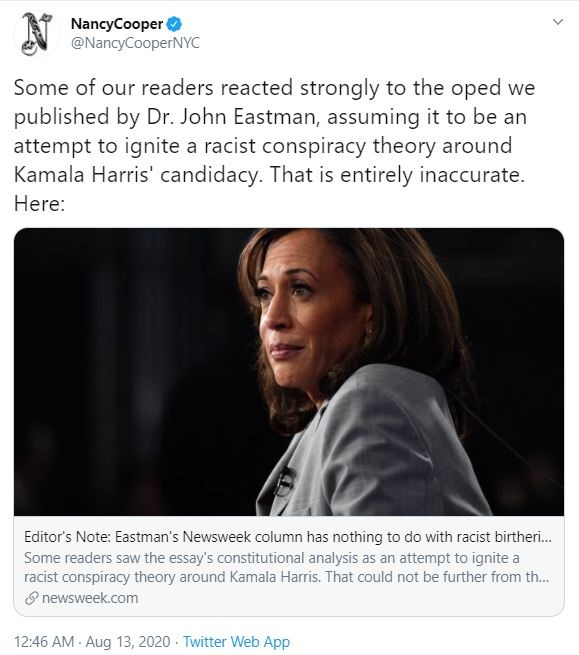
Newsweek’s editors claim it wasn’t birtherism (racism focusing on a candidate’s birth place), but a 14th Amendment issue (racism focusing on a candidate’s parents’ birth place).
It’s still racism. There’s no excuse for running Eastman’s racist op-ed. Period.
It’s bad when right-leaning Axios says the op-ed is baseless and hypocritical since Eastman didn’t have any problem with Ted Cruz’s candidacy in 2016.
Justin Fox at Bloomberg Opinion definitively takes apart Eastman’s monstrous argument in case there’s any doubt, replete with excerpts about the drafting of the 14th Amendment. This is what Newsweek should have sought before approving Eastman’s racist crap.
~ ~ ~
Eastman likely picked up his cue from USAToday’s fact-checking article addressing an earlier Facebook entry which cast doubt about Harris’s eligibility (not linking to the entry):
USAToday said they reached out to this Facebook poster. They never mention whether they had any luck making contact.
I doubt they could.
The poster’s last name, Sciuridae, means squirrel in Latin; the last name doesn’t match the username in the Facebook URL for the post, aseckora. The post looks — well, squirrelly.
The post’s timing doesn’t make sense — it’s dated August 2 when Biden didn’t announce his running mate until Tuesday August 11.
While USAToday did a thorough job shooting down the Facebook post’s false claims, it doesn’t look good that it didn’t resolve the source of the claims.
Whatever triggered Newsweek’s unacceptable choices isn’t rational. A once-respected news organization has now become cursed by its terminal adherence to bothsides-ism, giving a platform to racism.
~ ~ ~
In the manga work, “Death Note,” by Tsugumi Ohba and Takeshi Obata, the character L Lawliet describes the targets of his detective work:
“… There are many types of monsters that scare me: Monsters who cause trouble without showing themselves, monsters who abduct children, monsters who devour dreams, monsters who suck blood… and then, monsters who tell nothing but lies. Lying monsters are a real nuisance: They are much more cunning than others. They pose as humans even though they have no understanding of the human heart; they eat even though they’ve never experienced hunger; they study even though they have no interest in academics; they seek friendship even though they do not know how to love. …”
While their adored tangerine-tinted president abducts children from the parents and cages them, sucks resources from taxpayers’ government services, lies about the spread of pandemic and the reasons why Americans are dying, the right-wing will argue again and again that Harris is some kind of monster. These arguments will be propelled even further by their trollish minions to flood the zone.
They’ll ignore the logical inconsistency of their claim Harris is not eligible as an immigrants’ child though their fearless and feckless leader is an immigrant’s child, too, and the grandson of a then-Canadian brothel owner to boot.
We can see the challenge isn’t immigrant parentage. We can see their problem.
The real problem for the right-wing isn’t that Harris is some kind of dread bugaboo or a feared bugbear.
It’s that Harris isn’t one of their kind.
She’ll never be qualified to be a white supremacist monster.
.
UPDATE-1 — 6:45 P.M. ET —
The monster in the White House just referred to Eastman’s piece-of-shit racist op-ed.
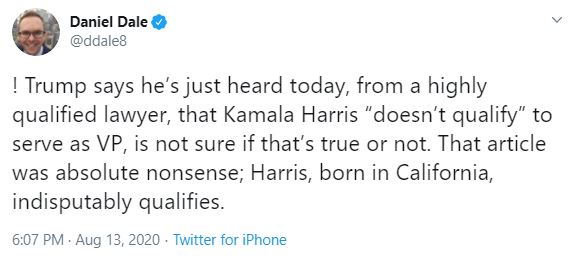
This is why this argument must be repudiated strongly. Average Americans have taken this man’s word on face value too often — like the man who poisoned himself with HCQ or the people who sickened themselves drinking disinfectant after Trump promoted both as means to treat COVID-19.
These same people will accept on faith this racist’s racist lawyer’s bad opinion because he said it from the presidential podium.
.
UPDATE-2 — 8:00 P.M. ET —
It’s on Newsweek for platforming Eastman’s racist bullshit, validating it as equal to any counter argument.
It’s on other entities like USAToday which fact checked another birther’s claims but did not call it out forcefully as racism. The words race, racist, racism never appear in their article.
As I’ve said before: Get comfortable with calling out racism. I’m talking to you white people. Recognize, call it out, shame it.
The reason why Trump had any chance of winning in 2016 and again in 2020 is racism. Until you, white people, make it socially, morally, ethically unacceptable to be racist, Trump and his kind of monster will continue to acquire and hold power.
It’s not enough to just nod your head. Silence is approval. Silence is complicity. You must be anti-racist if you want the monsters dead.
Newsweek was overtly racist by publishing Eastman’s racist screed.
USAToday piece is what happens when white people just nod their heads and don’t openly acknowledge racism at work.
Which media outlets recognized the next generation birtherism as racism?







